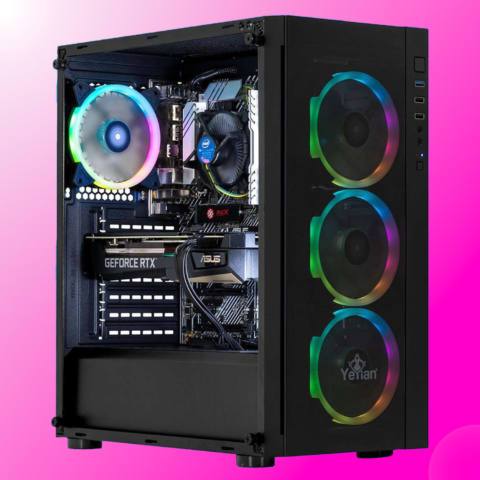Mark Zuckerberg has just wrapped up his Meta Connect 2024 keynote, in which he announced new products such as the $300 Quest 3S VR headset. But something that made an unexpected splash at the show is a project called 'Orion'—a pair of holographic AR smart glasses.
Now, AR smart glasses are not something that I'd usually be that into. But recently digging out a pair of Lenovo smart glasses that let me watch TikTok while lying entirely flat in bed has somewhat sold me on the idea. Orion is much more than that, however.

Orion are holographic smart glasses featuring eye tracking, hand tracking, AI voice control and a neural interface. Yeah, a neural interface sorta like what Gabe Newell likes to talk about and Elon Musk is trying to build. Though, no, you don't need an implant into your brain to get Orion working—it works off movement in your wrist.
How this “wrist-based neural interface” works exactly is not fully explained. I'm assuming Orion responds to small signals from your wrist through the seemingly cable-free wrist monitor shown during the presentation, and translates those into more natural movements within the XR world shining in front of your eyes.
You can see what the XR world looks like from a couple of the clips during the show.
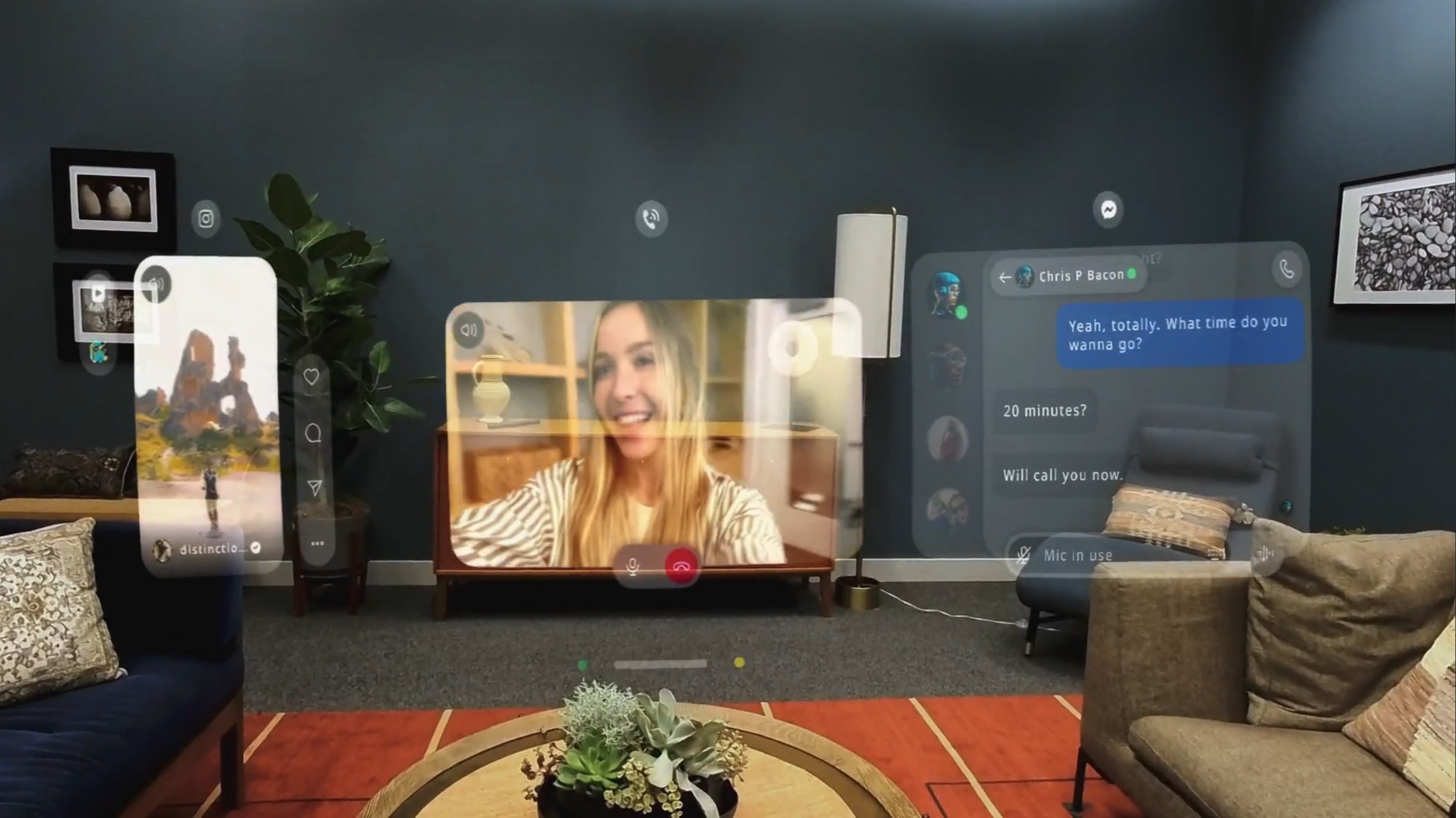
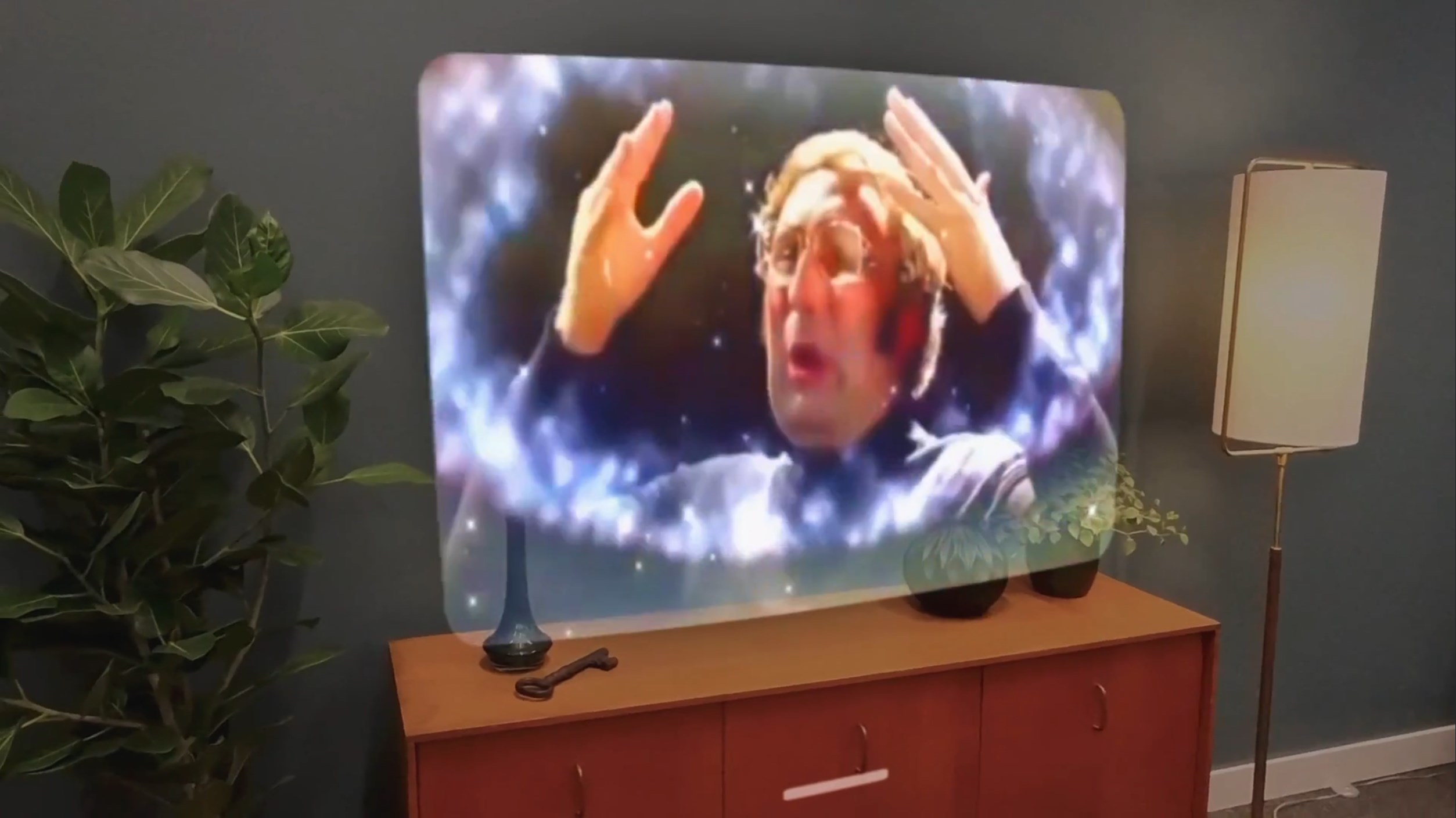
It sounds a bit odd, and I've not tried it, so I can't say how well it works personally. Though Meta did produce plenty of testimony, including from one bloke you might recognise. I certainly didn't expect to see him show up, but it makes complete sense that he came running when 'AI' was mentioned.
“This is a big deal” says Nvidia CEO and founder, Jen-Hsun Huang while wearing Orion.
“The head tracking is good, the brightness is good, the colour contrast is good, field of view is excellent,” Huang, ever the engineer, notes.
This was followed by a string of other users saying “that's crazy”, or something to that effect, over and over.



Orion does sound pretty crazy. It is built using silicon carbide, not glass, fitted into a magnesium frame. It uses tiny projectors in the arms of the glasses that “shoot light” across the lenses. It's powered by custom silicon and sensors, with a small battery in the arm of the glasses. There's also a “small puck” to help power the whole thing, apparently.
Even though the glasses look pretty dorky, and a little reminiscent of my regrettable early 2010s, it still sounds very futuristic. That's where Meta has to burst your bubble: these aren't coming out anytime soon. In fact, this exact model, Orion, is never coming out.
Orion is effectively an internal dev kit. It's what Meta is using to build up the consumer-ready version, whenever that may come. That pair of futuristic glasses, will be “ready to be our first consumer full holographic AR glasses”, according to Zuckerberg.

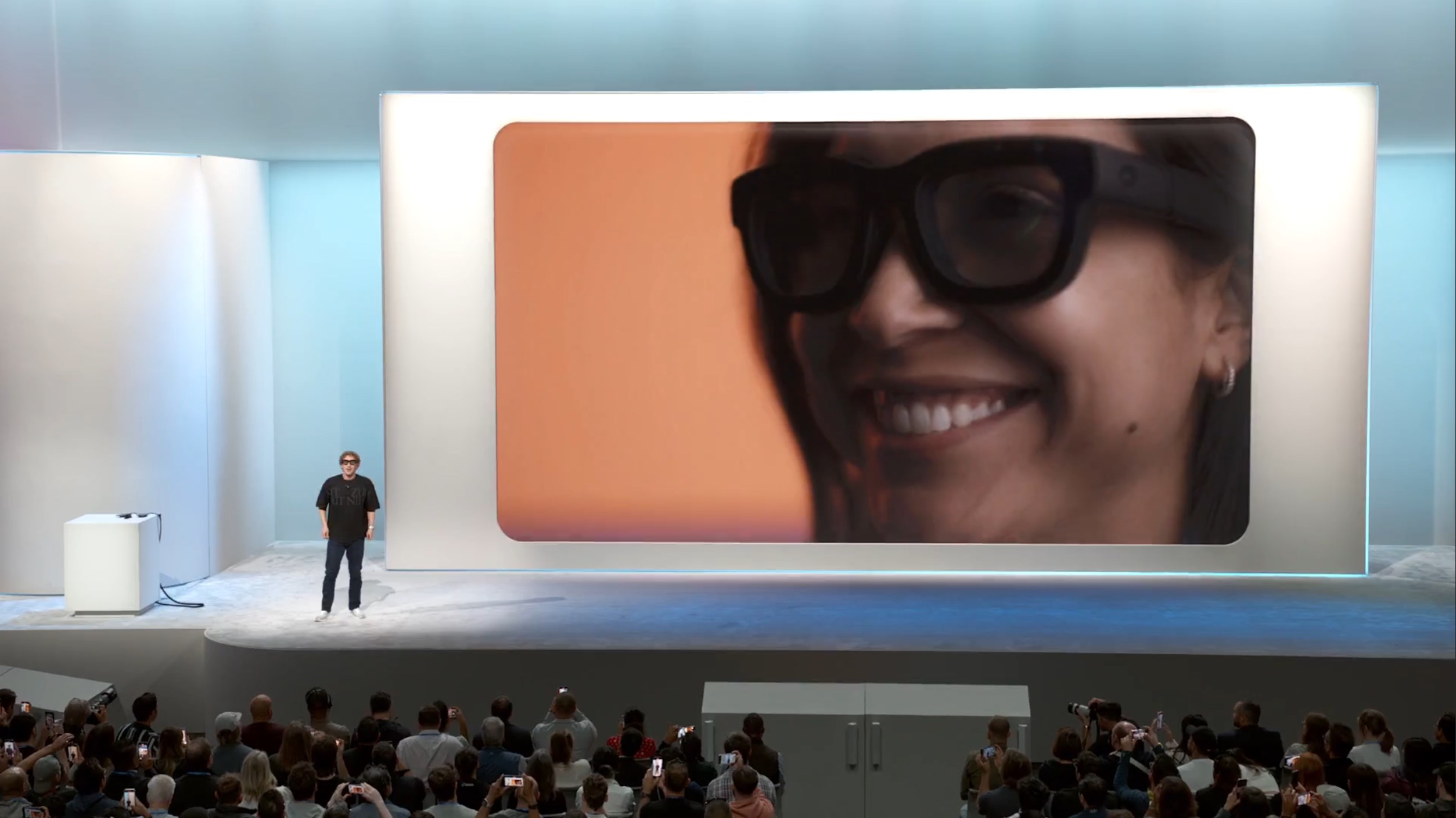
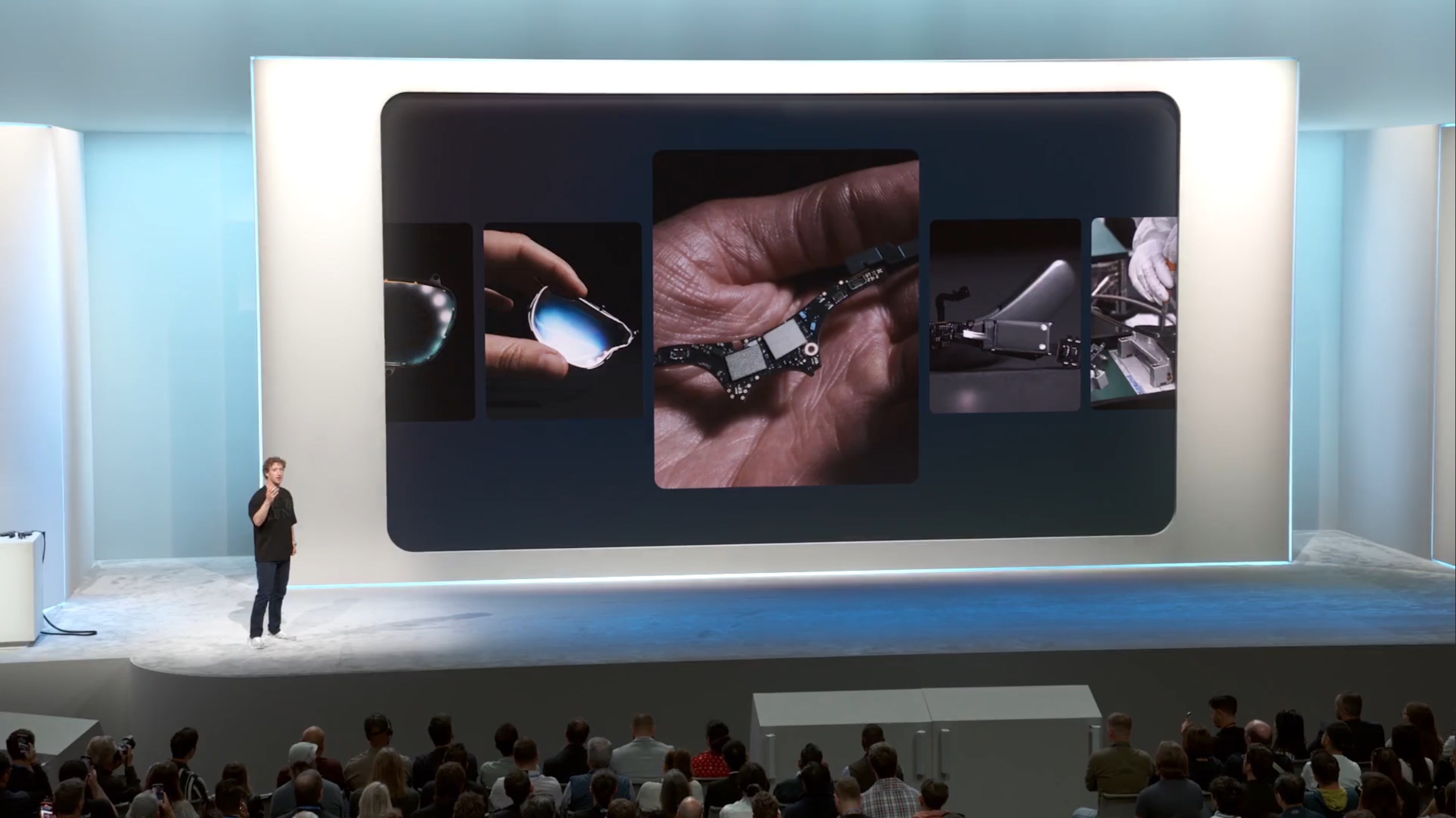
Zuckerberg also notes that Meta needs to work on bringing down costs. And if you'll recall, Meta's Reality Labs division that works on this sorta stuff has spent roughly a billion dollars every month for a couple years—culminating in a $16 billion loss in 2023.
So if you can think up a number for how much these glasses actually cost to develop and manufacturer, probably add a zero to that. Or two. Or three. They arrived on stage in a locked briefcase chained to someone's arm, for goodness' sake.
Nevertheless, this sort of wearable may one day be the future of the personal device, a replacement to the phone, even. That is providing this sorta thing is not uncomfortable over long periods or a privacy nightmare.
That's the real kicker with these wearables, glasses, and headsets. Sure, they're futuristic, often amazing, and a real glimpse of the future, but I wanted to wear the Quest 3 to watch Meta Connect just now and, within moments, gave up and went back to my PC. It's just more convenient.
Crack comfort and I'll try your smart glasses, Zuck.

Best gaming mouse: the top rodents for gaming
Best gaming keyboard: your PC’s best friend…
Best gaming headset: don’t ignore in-game audio






